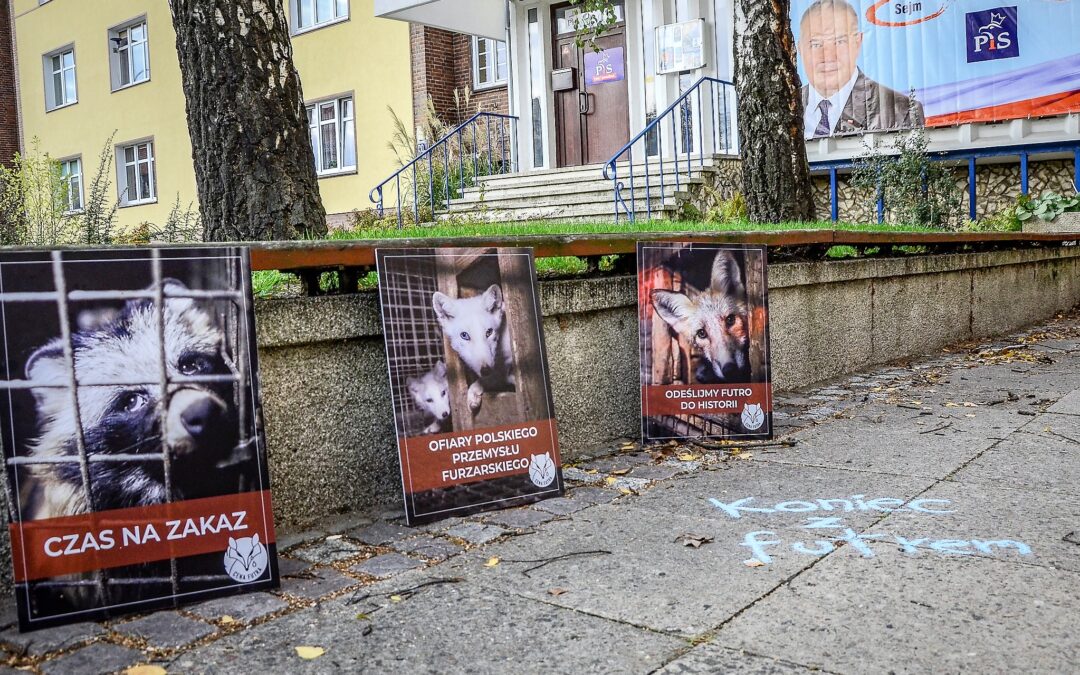A deputy education minister has criticised a school textbook for covering animal rights, a concept which he says “does not exist”, as the law does not apply to animals. He vowed that the ministry’s current review of teaching materials will remove such “ideological content”.
Animal rights is a sensitive subject in Poland, sometimes seen as threatening the country’s history, culture and way of life. Last autumn, the ruling Law and Justice (PiS) party was forced to withdraw an animal rights bill after it prompted protests from farmers and splits in the ruling camp that threatened to bring down the governing coalition.
Tomasz Rzymkowski, a deputy education minister, was asked in an interview by Catholic newspaper Nasz Dziennik when the ministry would be checking textbooks used in the first three years of primary school.
The interviewer said that this is the stage when “indoctrination of the young” can take place, and noted that a textbook for third-year pupils (aged 8-10) included references to violations of animal rights that had outraged Nasz Dziennik’s readers.
Rzymkowski responded by saying that he was “very surprised and appalled” to hear about the contents. “I believe that school should not be a place of ideological indoctrination,” he declared.
He explained that the concept of animal rights does not exist in law and “is associated solely with the sphere of ideological notions”.
“According to science, the law is attributed to God and humans. There is divine law, also called natural law, and that resulting from the system of values in which a given society lives,” he continued.
Humans therefore have certain obligations towards animals, but animals cannot be the subject of laws, Rzymkowski continued. “The concept of ‘animal rights’ does not exist.”
“Parents can be certain that the textbooks of the youngest children will be thoroughly checked so that only content in keeping with the best scientific knowledge, free from any manifestations of ideologisation, will be addressed to children,” Rzymkowski promised.
Shortly after taking office last year, the new education minister, Prezymsław Czarnek – a hardline conservative who pledged to fight the “dictatorship of left-liberal views” that “dominates education” – dismissed the head of the department responsible for teaching materials. Last month, the ministry began analysing the content of school textbooks.
The education system needs to better reflect the “civilisational identity” of Poles, said Radosław Brzózka, a ministry spokesman, adding that the secularisation of schools means “blocking access to the truth”.
“We are heirs to the Greek, classical tradition, but also those who in the light of the Gospel search for the truth in a way free of prejudice and ensure that this truth is universally accessibly, not some secret knowledge,” he said, quoted by Wirtulalna Polska.
Czarnek, a highly controversial figure whose appointment led to calls for an international boycott and petitions for his removal, has also suggested that the teachings of former Polish pope John Paul II should be used in Polish schools to instruct children in business and sexuality.
The question of animal rights is seen by some Polish conservatives as a left-wing construct that is at odds with traditional values. Conversely, Jarosław Kaczyński, the chairman of national-conservative PiS and Poland’s most powerful politician, is a noted animal lover who has backed new animal protection laws.
That included the legislation presented last autumn, which came in the wake of secret recordings at a fur farm that revealed alleged cases of severe animal abuse.
The bill resulted in protests and faced opposition from Agreement (Porozumienie), one of the other parties in the ruling coalition, as well as within PiS itself, including from the then agriculture minister, Jan Krzysztof Ardanowski, who warned that it would damage the countryside, PiS’s heartland.
Main image credit: Otwarte Klatki/Flickr (under CC BY 2.0)

Ben Koschalka is a translator, lecturer, and senior editor at Notes from Poland. Originally from Britain, he has lived in Kraków since 2005.




















